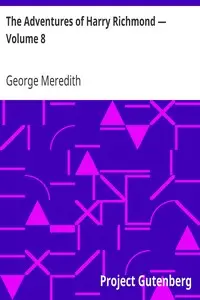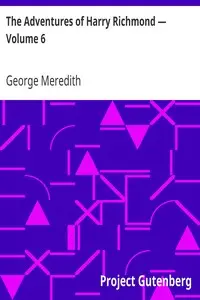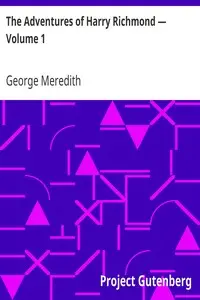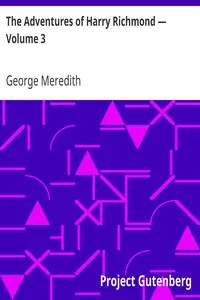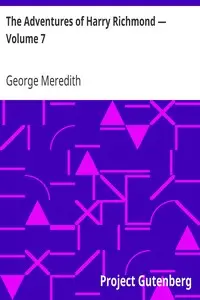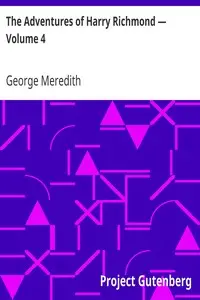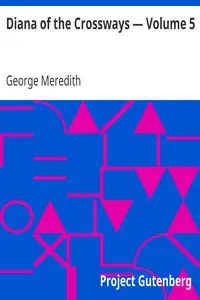"The Adventures of Harry Richmond — Volume 5" by George Meredith is a story from the late 1800s that dives into the life of Harry Richmond as he struggles with love, duty, and what society expects of him, especially concerning his romance with Princess Ottilia, all while dealing with complicated family issues and personal ups and downs. The story kicks off with Harry getting better after a fight that hurt him both physically and emotionally. He wants to reconnect with his dad, but gets sidetracked by a young nurse named Lieschen. Harry is torn between his feelings for Princess Ottilia and worrying about whether he's good enough for her because of their different social classes; while dealing with anxieties regarding his own value and status, he's also pulled into confusion as Ottilia shows up dramatically, breaking free from her royal responsibilities to chase after love. The beginning sets the stage to examine themes of ego, being open, and the issues encountered by people caught up in the rules of high society.
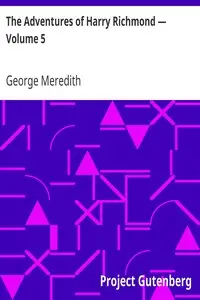
The Adventures of Harry Richmond — Volume 5
By George Meredith
A wounded man's recovery is complicated by royal romance, familial expectations, and the surprising arrival of a headstrong princess who defies societal norms.
Summary
About the AuthorGeorge Meredith was an English novelist and poet of the Victorian era. At first, his focus was poetry, influenced by John Keats among others, but Meredith gradually established a reputation as a novelist. The Ordeal of Richard Feverel (1859) briefly scandalised Victorian literary circles. Of his later novels, the most enduring is The Egoist (1879), though in his lifetime his greatest success was Diana of the Crossways (1885). His novels were innovative in their attention to characters' psychology, and also portrayed social change. His style, in both poetry and prose, was noted for its syntactic complexity; Oscar Wilde likened it to "chaos illumined by brilliant flashes of lightning". Meredith was an encourager of other novelists, as well as an influence on them; among those to benefit were Robert Louis Stevenson and George Gissing. Meredith was nominated for the Nobel Prize in Literature seven times.
George Meredith was an English novelist and poet of the Victorian era. At first, his focus was poetry, influenced by John Keats among others, but Meredith gradually established a reputation as a novelist. The Ordeal of Richard Feverel (1859) briefly scandalised Victorian literary circles. Of his later novels, the most enduring is The Egoist (1879), though in his lifetime his greatest success was Diana of the Crossways (1885). His novels were innovative in their attention to characters' psychology, and also portrayed social change. His style, in both poetry and prose, was noted for its syntactic complexity; Oscar Wilde likened it to "chaos illumined by brilliant flashes of lightning". Meredith was an encourager of other novelists, as well as an influence on them; among those to benefit were Robert Louis Stevenson and George Gissing. Meredith was nominated for the Nobel Prize in Literature seven times.

